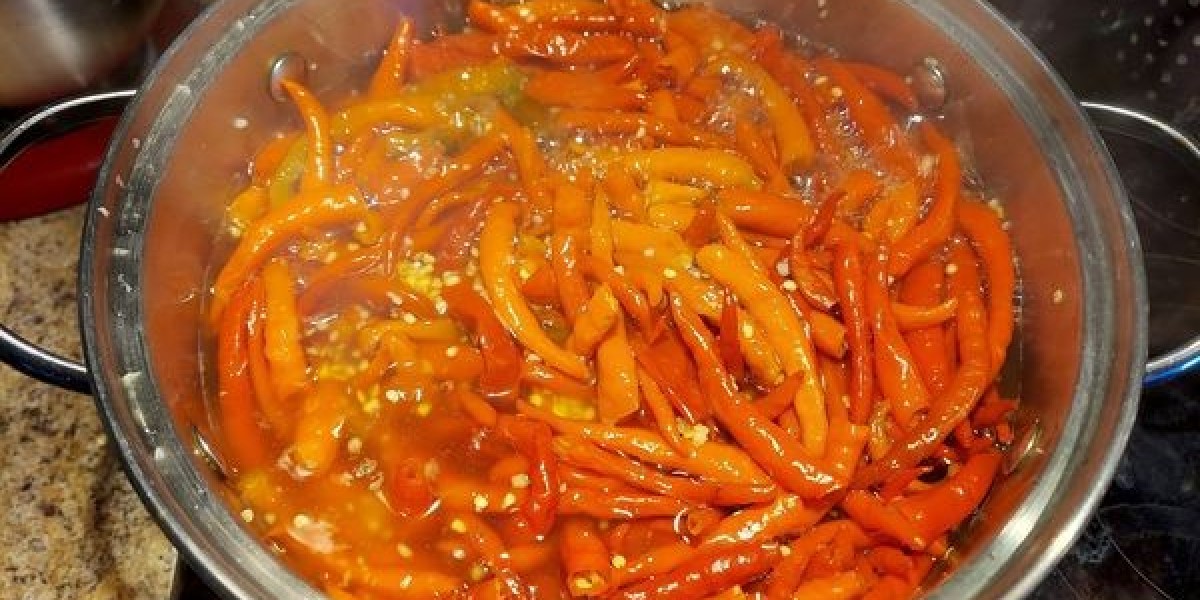This batch started with about 5 lbs. of cayenne peppers, and yielded about 1 1/2 gallons of good sauce.
This is a vinegar based sauce that is a staple in Cajun and Creole cooking, and other regional American cuisines. I tried using apple cider vinegar for this once, but I didn't like the taste, so I have just been using ordinary distilled white vinegar since.
Traditional Buffalo wing sauce is 2 parts melted butter plus 1 part cayenne pepper sauce. I also add this sauce to apple cider vinegar and butter to make a fabulous pot liquor for boiled greens (collards or turnip greens). Even my grandkids like them, especially if I boil potatoes in the bottom of the pot, submerged in the pot liquor, and top the greens with fried bacon pieces. (There is no alcohol in pot liquor, by the way).
You can use other kinds of chile peppers for this method, and they will make a fine sauce - even a blend of 2 or more pepper varieties.
INGREDIENTS:
Fresh picked cayenne peppers, as much as you want or have
Minced garlic: As much as you like. I use about 1 Tbsp. per pound of peppers (about 3 cloves)
Distilled white vinegar: Enough to cover the peppers in the pot.
INSTRUCTIONS:
Wash the peppers and snap the stems off. They snap off just like snapping green beans.
Place the peppers in a pot large enough to hold them, add the garlic, and pour enough vinegar in for the peppers to rise a couple inches. Place the pot on the stovetop over medium high heat and bring to a low boil. Reduce heat to low and simmer, covered, for 3 hours. (It takes a while for the skins to soften).
Working in batches, puree the pepper and vinegar mixture in a food processor. Strain the sauce through a wire mesh strainer, reserving the pulp and seeds.
Return the pulp to the food processor, in batches if necessary, and add a little more white vinegar. Puree again, and strain again. After the 2nd straining, throw the pulp out.
Bottle the sauce as you wish and store at room temperature. This sauce does not need to be refrigerated.



